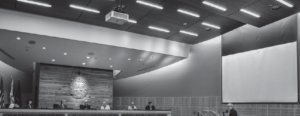A LETTER FROM FRED
Good day to you all, Friends and Neighbors:
I am a proud citizen of our quaint city and a witness to the changes which have come downtown over the twelve years I have resided here. For the most part, we have held our own in the battle of civic pride vs. uncivil behavior, but the spectre of “gentrification” has overtaken those in authority, bringing a new set of problems and solving few of the old ones.
A stalwart figure in the Works In Progress annals, Dan Leahy, researched the progress made by “developers” in our downtown area, which may have produced profitable buildings, but has not to date improved the economy of the City of Olympia [Leahy at http://olywip.org/exempting-the-wealthy-and-raising-the-property-tax-burden]
A couple years back, I found a Chamber of Commerce review of Olympia’s desirable qualities in the Washington Post. It praised our breweries, art galleries, colorful alleyways, genteel marinas and waterfront parks. We were wishing to be known as a “walkable” town. Nowadays, we have watched as the portion of our population without any sort of housing has multiplied and lessened enthusiasm for a stroll around downtown.
Dan’s research predicted that the new “mixed use” construction would bring a wealthier group to reside here, and that their presence would not raise the standard of living nor improve the financial structure of city government. All this has now come to pass. The apartments in downtown, mostly complete and occupied, have added about one thousand persons to the population with the accompanying “footprint” of urban dwellers and the demand for the best infrastructure that is available to support modern living.
The tax breaks, time limited as they are, prevent the city from gathering revenue appropriate to the burden of so many people in one place. The developers will be well rewarded and the builders will be paid, but the city will struggle to provide the usual services for a suddenly increased population. Comparisons with other small cities fail, mostly because our primary employer is the government.
In 1918, the decision to erect the stately buildings which perch on Capitol hill transformed our economy and put Olympia in a different class, along with state capitals everywhere in the US. In contrast to Manhattan, NY, commerce took second place to government as a driver of the local economy. As with the District of Columbia, government is not always the best kind of citizen.
In the nineteenth century, folks like Edmund Sylvester came to garner profit from the Pacific Coast trade and exploit resources like evergreen forests. The harbor area was reformed to accommodate a variety of shipping. A rail line was built to bring in logs to form great rafts that floated up Puget Sound. The present downtown sits at sea level and is largely composed of buildings resting on filled land. The harbor was intended to serve commerce and an expanded downtown to bring goods and services to residents on the hillsides and beyond.
The question in the air during the few years I have resided in downtown Olympia is “What are we doing here?” The progress represented by the several new apartment structures has begged that question by raising a vision of gracious living above street level. Apartment dwellers do not automatically engage with an urban environment as they might if they owned their residence. In today’s fluid economic environment, someone in a downtown apartment may not ever set foot on a sidewalk to get their basic needs met. If the view from your window is of a place you go on impulse to “get out” or to walk the dog, will you have the same civic feeling as the owner of a legacy home?
The point is that I cannot ask these questions where it matters. I wish for the newest residents to ask themselves what changes need to come to fulfill the promise offered by the advertisements that brought them here. Is it a fine view as long as you stay inside, but fraught with unpleasantness as you step out? Are we longer-term citizens expected to clear away refuse (of all sorts) and polish up the infrastructure?
Citizenship in a town is a simple fact of occupancy, but a healthy community must come with purposeful actions that enable people living close together to feel safe, and see themselves as part of human progress. If what we have here represents a common vision of progress, let’s move to put life in the vision. You can’t put stick figure people into an architectural schematic and see the value of the architecture.
Bottom line: we cannot leave all the decisions to government if we are to be known as a healthy town to walk around in. Once we can be on the street together with civic pride evident, we may also fill any deficit in city revenue by regularly patronizing downtown merchants and services rather than motoring out of the city or looking online for every kind of thing that might be available locally.
Fred Silsby is a proud denizen of downtown Olympia and a former newspaperman.

Be First to Comment